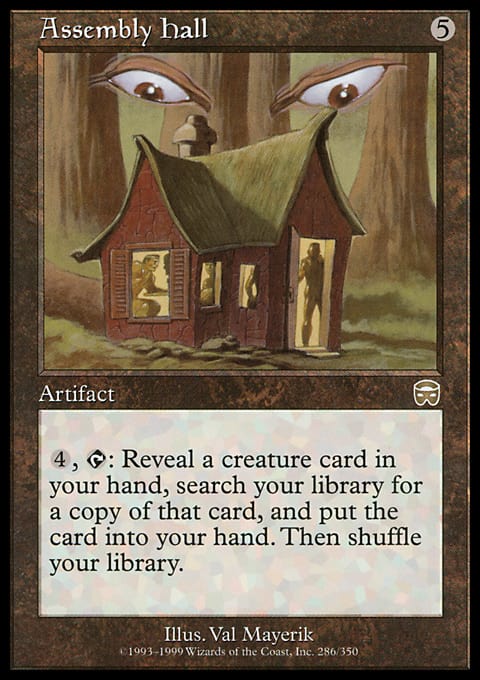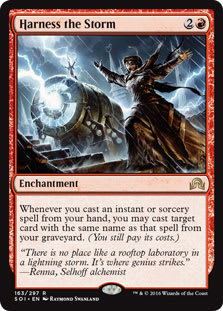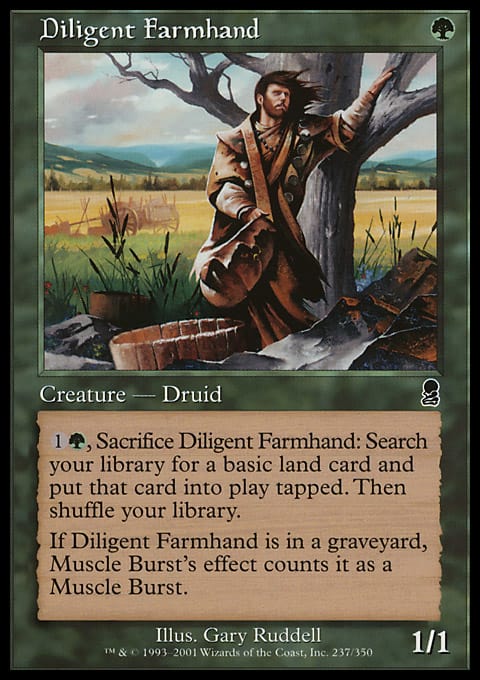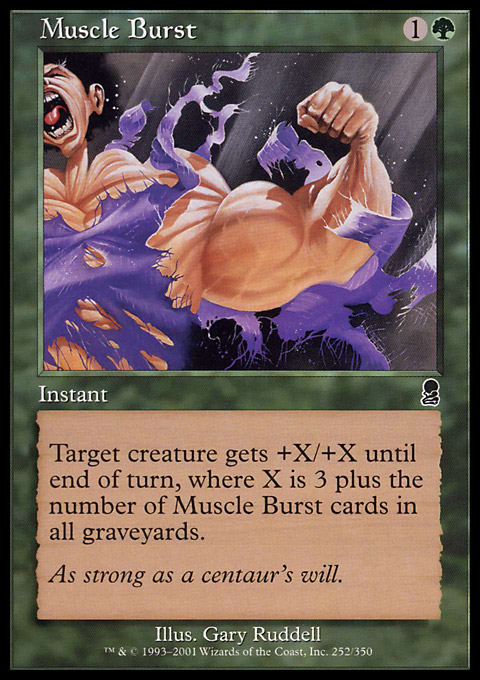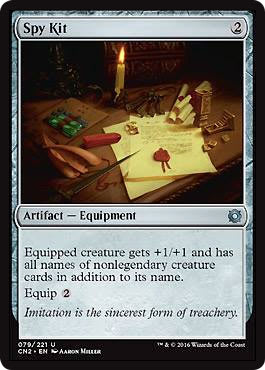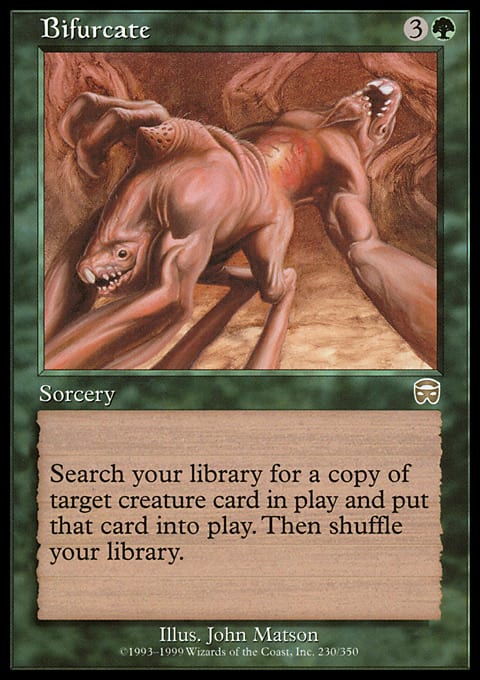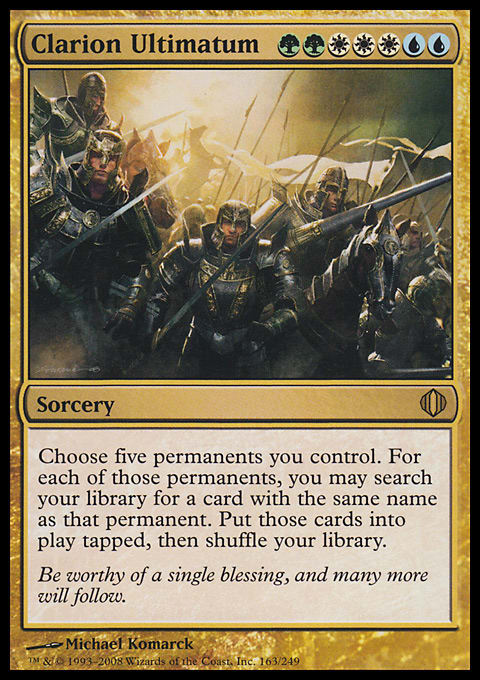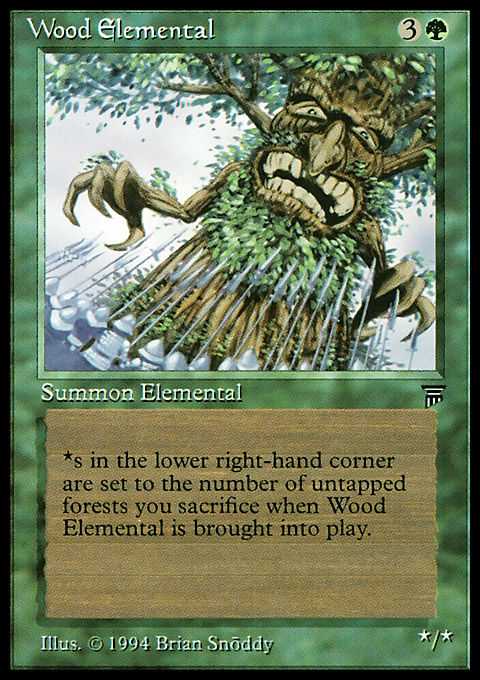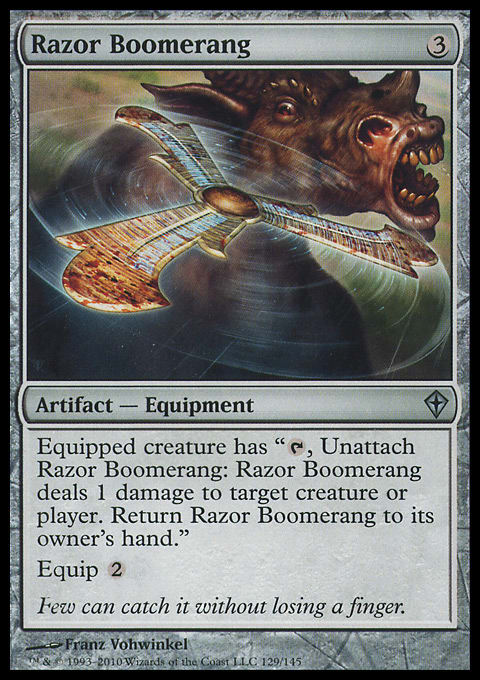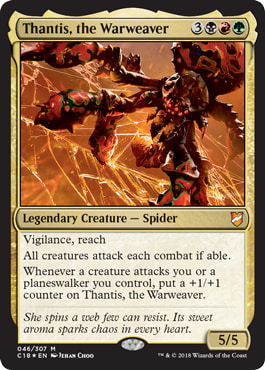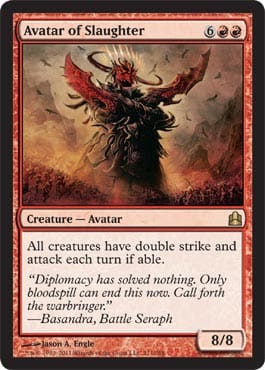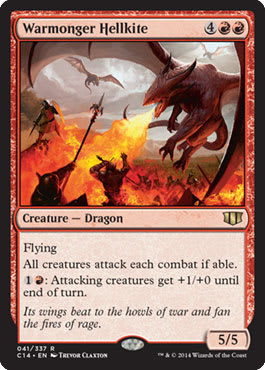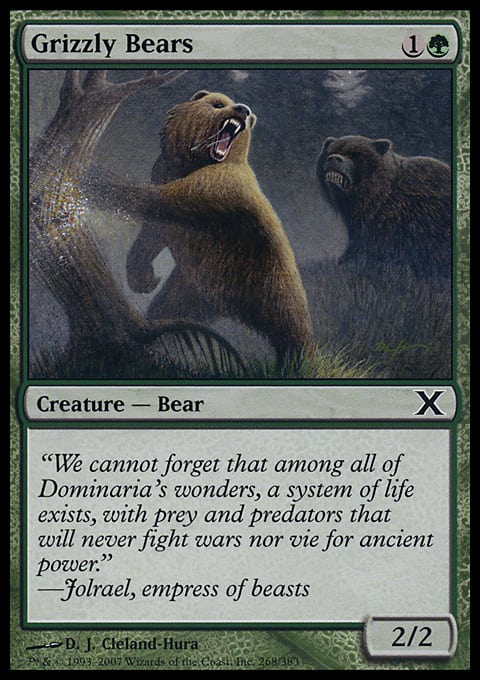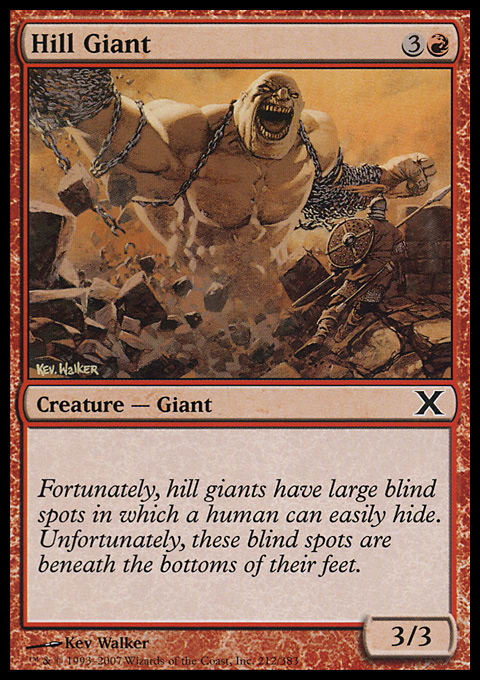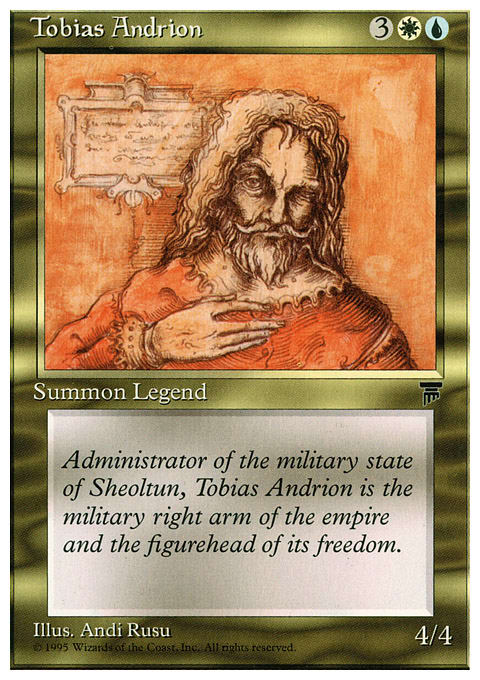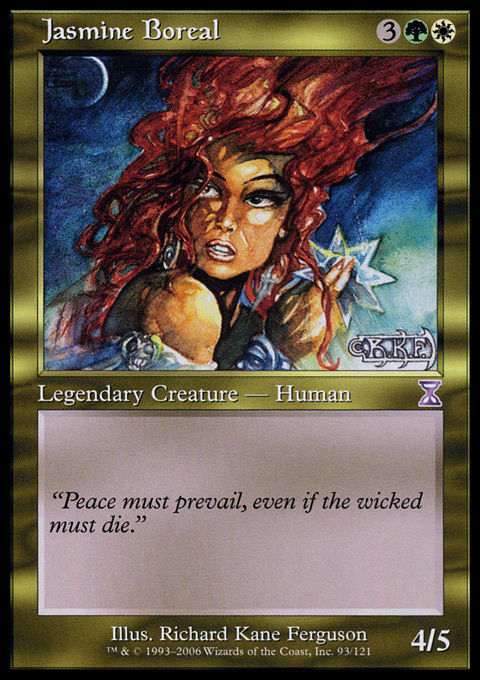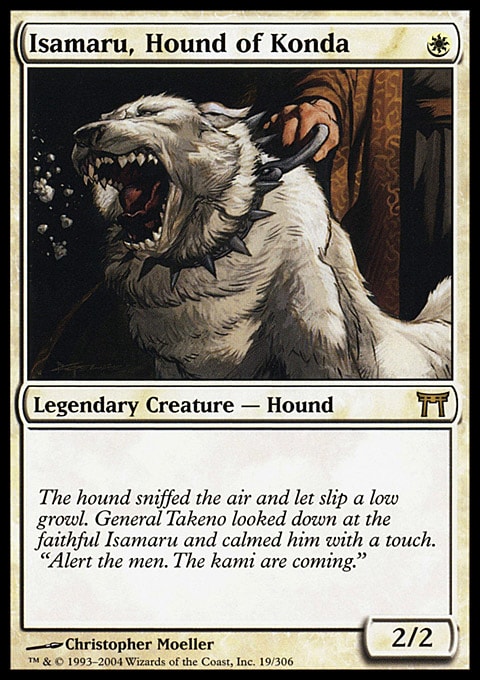
View of La Crescenza by Claude Lorrain (1648-50). Hatchery Spider by Livia Prima.
Going into this week I had been gearing up to write about the Ravnica Guild Kits, but the more I looked at the topic the more I realized that I was going to wind up assembling Yet Another Ramos Deck(TM) with as many hybrid symbols as possible and every card in the list coming from one of the five Guild Kit decks. The talented Jim Casale wrote about the Guild Kits earlier this month in his "Are the Guild Kits Worth Buying" article on this very sit,e so if you're interested in that product I'd urge you to check that out.
If you still want to see my take on Guild Kits from a Commander perspective, comment below and I'll tackle it next week. I'm not yet committed to a topic and I'm always open to reader requests.
This week I have decided instead to write about a fresh and fun new topic - cards you shouldn't play in Commander.
Before I begin please DO NOT just scroll down and assume every picture represents a card I think you shouldn't play. Many are illustrations around a broader talking point and you should really just RTFC. Read the Fantastic Column.
Sheldon's List
This is s a topic recently brought up by one of the founders of the format, Sheldon Menery. In a much-discussed article, he went through a number of cards and types of cards that are legal in the format but that he doesn't play and wishes you wouldn't play either.
Sheldon's list is made up of Armageddon, Back to Basics, Grand Arbiter Augustin IV, Mindslaver, Palinchron, Paradox Engine, Seedborn Muse, Sorin Markov, Stasis, Static Orb, Thieves' Auction, Winter Orb, Wound Reflection, and a bonus Commander - Derevi, Empyrial Tactician.
The idea isn't as much that these specific cards are off limits as it is that these types of cards are generally bad for the format but not so toxic that they should be banned. Sheldon doesn't hate Armageddon and love Catastrophe. He seems to think that these cards and the general strategies they represent, such as mass land destruction, aren't a good way to encourage fun games and healthy playgroups.
Many players dislike having to face these strategies, but not all would go so far as to say that you shouldn't play these cards. I suspect that by making such a bold statement Sheldon is as much trying to spark a discussion as he might be trying to change anyone's mind.
The takeaway from his list that I somewhat agree with is the idea that cards like Sorin Markov and cards which put a player to a set life total are really frustrating. I've had too many bad experiences in games where things were going well and suddenly I was out of the game in no small part because of a Magister Sphinx or something like that.
While cards that set your life total to 10 (or 1) are rough to get regularly targeted with, they are a fine way to deal with infinite life totals, and that's a thing that can easily happen in Commander. I can see how they have a place in the format, but I also find the feel-bads to outweigh the times they are actually used to deal with insanely high life totals.
The real head-scratcher is why Sheldon and the Rules Committee doesn't just have these particular cards get an official caveat that in our format the number on the card is doubled.
We have twice the life to begin with so it probably wouldn't break the format to have a list of cards whose effects are modified in our format. Master of Cruelties might still be brutal when used with Alesha, Who Smiles at Death, but lots of feel-bad cards would become much more palatable to the portion of the community that dislikes life-total-setting in a 40 life format.
If that were to happen, I would not advocate doubling the infect count from 10 to 20. The creatures available that have infect do not scale up to support a 20 poison count rule. Such a change would be shortsighted and would make infect completely unplayable in Commander. It's a hard enough strategy to play in multiplayer already.
Today's column needed to start with Sheldon's list, but my real goal is to give you a look at the cards that I feel shouldn't be played in our format.
My list might seem a little obvious to many of you, but there are newer players out there. This list might be more oriented toward those who aren't as well-versed in our format as you are, dear reader, but I hope you enjoy it no matter how much of a veteran Commander player you might be. This is meant to be a general discussion, not a discrete list of cards you shouldn't play.
Cards With The Same Name...
When I first started getting into Commander I used to love going through boxes of old cards. I would look at all the weird creatures and spells and imagine how I might use them in a particular deck. I used to get excited about all kinds of cards that I know now aren't really that good, and every now and then I would fixate on a card that is just useless in a singleton format.
This is a small sampling of the cards that have been printed that really don't work in a singleton format because they depend upon having multiple copies of cards in your deck.
Many of them seem like they might be OK at first glance, but when you're searching for cards with the same name as another card you shouldn't be able to find one. Commander is a Singleton format, so you construct your deck with no more than one copy of each card outside of basic lands.
As much as I might be telling you that "same name" cards should be avoided at all costs in a singleton format, you should know about Spy Kit. This odd little piece of equipment will give a creature all names of nonlegendary creature cards in addition to its own name.
If you're willing to build a strategy around one easily-removable piece of equipment then you might be able to find ways to use "same name" cards. Spy Kit is the only card that I can think of that would make a tutor like Bifurcate playable in Commander, so you would probably do better to just play good cards that don't require Spy Kit to be on the field and equipped in order to be viable.
I suppose you might use a clone to copy your commander, send your commander to the graveyard when it dies to the Legend rule and then use Bifurcate to bring your Commander back again to get yet another enter-the-battlefield trigger, but that's corner-case, next-level stuff. In general you really don't want to be playing these types of cards in Commander.
While I think you shouldn't play these kinds of cards because they are just bad in a singleton format, I have the utmost respect for anyone brave or crazy enough to try to build a Spy Kit deck for the express purpose of making them work. I don't like your chances of winning a game at anything but the most casual of tables, but you definitely have my respect.
Really Bad Cards
Commander is a format that lets us play the most obscure cards and find ways to make even the bad advantageous.
Our format isn't unique in this. Death's Shadow is a 13/13 that costs one Black mana and gets -X/-X where X is your life total. You might look at it and wonder why anyone would ever play a creature with no evasion or useful abilities that will often die as soon as it hits the battlefield, but it's actually not a bad card. Death's Shadow is big in Modern and in Commander it fits right in with The Mimeoplasm, Varolz, the Scar-Striped and other graveyard-based decks that have ways to take advantage of that 13 power.
While Death's Shadow is an example of a great card that just seems bad to the untrained eye, there are plenty of cards that are just terrible and should probably never be played.
Wood Elemental is the poster child for bad cards in Magic.
The number of four CMC Green creatures you could run instead of Wood Elemental in your deck is... well... pretty much all of them.
Commander is the format of corner-cases, but it's hard to imagine a deck where this would be a better option than almost anything else. I guess I could imagine a land recursion engine in which you had a way to use Splendid Reclamation or World Shaper to bring lands back from the graveyard and then get landfall triggers. That might provide an bad excuse for playing this monstrosity, but you'd then have a problem. Unless you had a sacrifice outlet and then something else to put on top of this card in your graveyard, you would still have to sit there staring at some of the worst art in the history of the game.
Apologies to Brian Snoddy, but Wood Elemental's art is not good. It's not the worst ever, but it's really, really not good. I have no problem playing good cards that have bad art, but if you're playing bad cards with bad art you should get help.
The two artifacts shown above cost way too much, are way too slow and are way too underwhelming. There is almost no reason to run these in any deck ever. If you wanted to play cheap artifacts, there are better ones to play, and if you want to throw some damage around there are better artifacts and better ways to do that in pretty much every color.
I have to admit to having won a game with Flamecast Wheel, but it was one of those games where once I established an obviously winning boardstate - complete with infinite mana and infinite recursion, the table just scooped and I never even got to actually play, tap, sacrifice and recur my foil Flamecast Wheel.
Yes, I bought it in foil.
It is no longer in a deck and I'm only slightly ashamed that I bought this card in foil and used it to win a game.
I think I did it to see if I could, and once I had won a game with Flamecast Wheel, I never needed to play it again. I shouldn't have played it, I no longer play it, and you shouldn't play it either.
One caveat I should mention is that decks built to generate infinite mana tend to break normal rules of card evaluation. A card with an overly high mana cost and a ridiculously high activation that doesn't require tapping could be great once you have all the mana in the world. Playing a card like that in a normal deck makes no sense, but infinite mana changes everything.
There isn't anything wrong with playing mediocre cards, especially if you have ways to use them to your advantage. Casual playgroups have weaker decks on average and there is more room in a slower meta for cards that just aren't very efficient or powerful.
As you build decks and play Commander you get a feel for what cards are playable but weak and what cards are just really bad in practically every way and in practically every context.
Friends don't let friends play those no-good, terrible cards.
If you think you might be playing truly terrible Magic cards, talk to your friends. If they're really your friends they will set you straight and help you find better cards to replace the Wood Elementals, Razor Boomerangs, and Flamecast Wheels that might still be lurking in the darker corners of your worst decks.
Why Are You Attacking Me?
The next major category of cards I'm going to tell you not to play are cards that might seem like a good idea at the time but, in my experience, usually backfire. My best example of this is cards that force everyone to attack every turn.
When someone plops down a card that forces everyone to attack every turn, it's remarkably easy to convince the table that the next logical step is to kill that player and then return to a normal game of Magic. Players don't like to be forced to do something, and attacking every turn is a pretty aggressive thing to force everyone to do.
In a two-player game you might be able to withstand your opponent's attacks and turn that dynamic to your favor with deathtouch blockers or creatures with vigilance, but multiplayer is a very different game.
Players collude.
Opponents make deals.
Folks like to choose when they go into the red zone and when they hang back and wait for the right moment to swing. They will gladly kill you first for the sin of forcing you to attack. Mark my words. More often than not this will backfire, so you'd better be ready to handle the extra attackers that are going to be sent your way. Another option might be to set up a good enough pillow fort or put down a Glacial Chasm, but short of that you're probably going to be taking some heat for playing your Thantis.
I should note that this warning does not include Goad effects.
Goading a creature forces it to attack but requires that it attack an opponent other than you. I have seen a table turn against a player who was using Goad effects, so be wary of making yourself a target too early. You'd do well to sit on that Disrupt Decorum until it will set you up for a win. Playing it early can easily result in the rest of the table ganging up on you for the rest of the game, but I don't think Goad is that much of a problem because it usually only lasts for one turn.
I'm also not against playing creatures like Gahiji, Honored One and Gisela, Blade of Goldnight.
Creatures and effects that encourage your opponents to attack each other might turn the table against you, but they are a far cry from forcing players to attack every single turn. Playing these guys will put a target on your back, but it's a much smaller target. There is a chance that your opponents will react negatively to a Gahiji or Gisela hitting the field, but if you do wind up playing Archenemy at least you'll be in a better position than with a creature like Thantis on the field.
Vanilla Creatures
Commander is the format where you can play anything from the beginning of the game to cards that are fresh off the presses. Almost every card ever printed is legal in our format, and only card availability and price stand in way of playing whatever you like. That said - you really shouldn't play "Vanilla" creatures.
A "Vanilla" creature is a creature with no abilities or keywords.
Some of these creatures were so well known that they became a way of describing other Vanilla creatures with the same power and toughness. A 2/1 with no abilities might be referred to as a Goblin Piker even if it's really a Coral Merfolk because folks know that means it's a 2/1 with no abilities. I can see playing Vanilla creatures that are iconic, like the ones shown above, but you can almost always do better.
There are vanilla creatures that go above and beyond being boring creatures with no abilities by being legendary. The ability for the creature to be your commander could be looked at as an "ability", even though they technically have no keyword abilities.
The full list of vanilla legendary creatures includes Barktooth Warbeard, Isamaru, Hound of Konda, Jasmine Boreal, Jedit Ojanen, Jerrard of the Closed Fist, Kasimir the Lone Wolf, Lady Orca, Sir Shandlar of Eberyn, Sivitri Scarzam, The Lady of the Mountain, Tobias Andrion, Torsten Von Ursus, and the beloved Yargle, Glutton of Urborg.
I can see running a vanilla Commander to be a hipster, and I can see running a vanilla Commander to fly under the radar, but the cold hard truth is that there will always be better choices unless your greatest concern is a low CMC (Isamaru), a ridiculously high power (Yargle), or looking like you just walked off the set of the 1980 film Xanadu (Jasmine).
Choosing to run creatures with no abilities when for the same casting cost and probably the same actual cost is just wilfully making your deck worse for no good reason.
I should note that sometimes you might be tempted to run vanilla creatures when you're building a tribal deck.
To that, I say... go for it!
Playing a tribal deck usually goes hand-in-hand with playing a more casual style of Commander. In casual play it can make sense to focus on theme more than competitiveness. If your playgroup or meta is the kind of place where tribal decks can hang with the rest of the decks at the table, you're lucky but you should still prioritize playing GOOD creatures over vanilla creatures whenever possible.
If your tribe of choice is so sparsely populated that you're stuck with Amphin Cutthroat to fill out your Salamander deck, I get it.
Maybe your first pet was a Salamander.
Maybe you're covered in Salamander tattoos.
Maybe you're naming your daughter Sally and secretly you are choosing that name because you know your spouse would never agree to naming her Salamander.
Folks are weird. You've got no other options, other than the obvious choice of choosing a better tribe, reconsidering your life choices and getting past your obsession with Salamanders.
Playgroup Problems
We all have groups we play with.
Some of those groups are public and we have limited control over who shows up and wants to jump into a game.
Some of those groups are private, and we're faced with playing against the same people and the same decks again and again. This next section applies to insular playgroups where you're playing with the same friends and some of them really, really hate certain cards.
Let's say you have a player in your game that will literally scoop and go home if they see a Scrambleverse.
I can tell you that everyone should put on their big boy (or girl) pants and deal with whatever comes up in a game of Commander no matter no inconvenient, annoying or un-fun it is for them. It's easy to lecture you from my couch, but the reality is if you have a big baby in your playgroup and that player is also an old friend, you have a choice to make.
Do you play a card that will drive certain friends away and contribute to the dissolution of your playgroup?
Should you instead choose to modify your decks to not include Scrambleverse?
This is a really fundamental question relating to your approach to the format. Are you all about winning (or trolling), are you there for the chance to spend time with friends or is it a mix of both aspects Commander that drives you to play?
Should your friends suck it up and deal with whatever you want to play?
Of course they should, but neither of us can magically make them do that.
Should you NOT play Scrambleverse if it will result in a friend no longer wanting to play with you?
My answer to that is YES.
If you take a trollish "git gud" attitude and then you eventually find that your playgroup is no longer playing as often (or at all) you really only have yourself to blame.
It's not worth it, and if these players are your friends, you should really try to find a middle ground between playing cards you want to play and ostracizing friends who really, really hate some of those cards.
It doesn't matter if the toxic card is Scrambleverse, Elesh Norn, Grand Cenobite, or the lowly Counterspell.
Your friends should be able to deal with whatever you like to play.
If they can't, I think you should prioritize the continuing health (and existence) of your playgroup over the fun might get continually trolling an overly sensitive friend.
Final Thoughts
If you're a regular reader of this column you might be surprised that I'm not weighing in with a long rant about how Elesh Norn is too mean, Magister Sphinx is just unfair, and Laboratory Maniac is too cheesy a way to end a game everyone else had been enjoying.
I do think it's important to focus on everyone in a playgroup enjoying the games you are playing, but I also think that these things have ways of sorting themselves out on their own. Also, the biggest issue with playing horrible, mean decks with horrible, mean cards in them is never actually the deck itself. It's the player piloting the deck.
I've lost games in the most brutal of ways, and did not come away feeling like I hated the player. I might have hated the deck, but if the player wasn't a jerk, it's easy to separate one's feelings about the player and about the deck.
I've also seen players who both played overpowered decks and comported themselves in a way that resulted in few Commander players in the store wanting to play with them.
I don't see a need to ban cards and I don't see a need to tell anyone they should or shouldn't play cards, over and above the obviously poor choices I've outlined in today's column.
Beyond that, you should really be able to work these things out between yourselves.
If someone is ruining your Commander games by only a Vorinclex, Voice of Hunger deck, a Mikaeus, the Unhallowed deck or a General Tazri cEDH deck, ask them to sometimes play that deck but mostly to play decks that are more in line with the play level and style of the group.
Don't ban their decks or the cards you don't like. Just ask them to mix things up a little so they aren't always crushing tables or draining all the fun out of your game nights.
If they refuse to meet you halfway, don't play with them.
It's that easy.
Just say no to trolls, and I think win-obsessed spikes who don't give a damn about anyone else's enjoyment of your game nights are basically trolls.
If you let a troll stay in your group and you fall into downward spiral of constantly trying to one-up each other and not losing to this player becomes the driving force behind your deck-building, things probably aren't going to end well. Maybe you can battle through adversity and your friendships will become stronger as a result.
I don't know you, and I don't know your playgroup.
I do know that more often than not friends actually care about each other and will prioritize the health of a playgroup over their personal winrate.
That's all I've got for you today. I hope your playgroup stays healthy, you can play whatever cards you like, and any big babies in your meta eventually figure out that no single card is so terrible that it's worth not playing. I also hope you have the wisdom to tune your decks not only for your enjoyment and competitiveness, but also with the enjoyment of your friends in mind. Mix it up, and care about everyone's experience of the game.
Thanks for reading and I'll see you next week!














